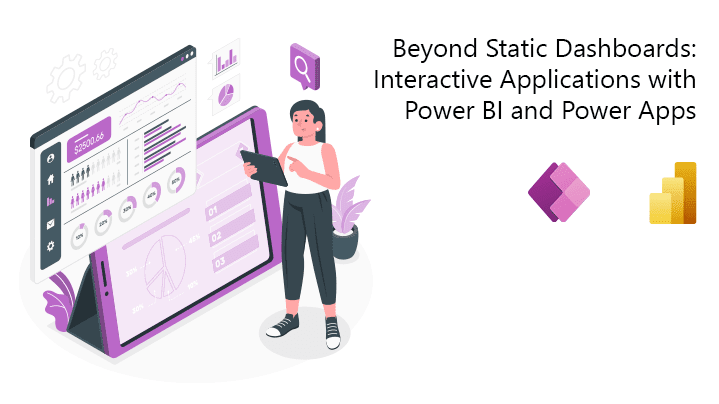
Mobile application development is recognized as a profession that is fast growing, with new trends and technology. However, what is the fuss around 2024 really about? As 2024 progresses, developers and companies working on mobile applications will encounter new opportunities and challenges. Exciting improvements are expected this year. These advancements will have a big impact on how mobile apps are developed, utilized, and included in our daily lives. To enhance the mobile experience, all mobile developers in Singapore rely on emerging technologies like blockchain and artificial intelligence. In this blog post, we will discuss the mobile application development trends that can change the landscape of mobile app development in Singapore.
The Most Groundbreaking Development Trends for Mobile Apps
Read on to find out the top mobile application development trends that are making waves this year.
5G Technology Integration
5G technology has been around for a long time, it’s currently the talk of the town. In comparison to 4G, 5G networks offer far better speed of data and latency. This means that mobile apps can deliver content and services to users more quickly and responsibly. Large file downloads and high-definition video streaming will operate more smoothly and effectively. With 5G, your app ideas won’t just stay ideas—they’ll become reality. We’re excited to see what this technology will bring next!
AI and Machine Learning
We believed that technology was reaching its limit. But, then AI shocked us with an innovative development. AI has mostly been used in smartphone apps for chatbots, photo editing, and virtual assistants. This was only until now. In many mobile app areas, AI and ML drive innovation. They also cause transformation. For instance, Google’s Socratic uses AI to explain difficulties to students. This helps them get help with their assignments.
These integrations assist mobile app developers to create smarter and more intuitive apps. It will be intriguing to see what occurs this year since AI and ML have already raised the bar so high.
AR and VR
With augmented reality and virtual reality, users can interact with content in 3D, making learning more realistic. This is useful in education, healthcare training, and industrial simulations. AR and VR also allow people to interact with avatars and places in new ways for entertainment and gaming.
2024 will see unthinkable changes in the mobile app development industry due to AR and VR. Here’s what to expect:
- Advancements in AR/VR will enhance performance and user experience.
- AR and VR technologies will integrate with other platforms like social media to expand usability.
- Businesses will adopt AR/VR for training, virtual meetings, and remote collaborations, bringing efficiency.
- AR/VR technologies will improve education by offering more realistic learning experiences.
Blockchain Technology
2020 was not a good year due to COVID-19, leading to the rise of mobile wallets and digital payments. Now, adding blockchain technology to mobile apps is a growing trend. Beyond cryptocurrencies, blockchain is affecting many industries by ensuring secure data storage and transactions. It increases transparency and makes transactions more efficient. By 2024 and later, blockchain technology is increasingly entering widespread use. This includes applications like smart contracts and anti-piracy tools. It also includes moderating elections and platforms offering Blockchain as a Service (BaaS).
Internet of Things
The IoT connects various devices and allows them to share information over the internet. Using IoT in mobile app development creates innovative and connected applications in different fields. Companies like Google, Apple, Amazon, Tesla, and Fitbit use this technology a lot. Even though IoT is new, its use in mobile apps is expected to grow.
Wearable Technology Integration
Today, people are just obsessed with wearable devices. And so, these have been in great demand in recent days. Smartwatches are the most popular wearables. They are used for health, fitness, disease, and alert management.
Even developers are creating apps that can exchange data between wearable and mobile. They are trying to help users access information from any of these endpoints. Companies like Apple have emphasized integration. They focus on the link between wearable and mobile devices. They aim to create a universal ecosystem for their products.
Cloud-Based Mobile Apps
Cloud infrastructure lets apps scale based on demand. Plus, developers can adjust resources to handle user growth. Cloud services remove the need for upfront hardware costs and maintenance. So, developers only pay for what they use, making it cost-effective for startups and businesses. App data can be accessed from any device, anywhere, thanks to cloud storage. Real-time collaboration on shared documents or projects improves productivity and teamwork. Cloud-based solutions help developers. They deliver flexible, accessible apps that meet changing user needs.
Security and Privacy
Given how much employees depend on mobile devices, downloading harmful mobile apps is a matter of concern for businesses. And, most businesses are looking to invest more in cybersecurity. Because it is directly linked to data protection and information privacy laws. Thus, digital security has come out as one of the top mobile app development trends in 2024. A shift towards a security-first approach will occur in the mobile app development sector in 2024.
Progressive Web Apps
Online Progressive Web Apps combine features from mobile and online apps. They provide offline use, responsive design, and cross-platform connectivity. They deliver an app-like experience with features like push notifications and home screen icons. When it comes to development and maintenance, PWAs are less expensive than native apps. They encourage high rates of user engagement and retention. They want to connect well with many audiences.
Conclusion
In short, making a mobile app in Singapore involves key trends. Among these are blockchain, artificial intelligence, and 5G. Additionally, wearable technology, the Internet of Things, and AR/VR are altering the creation and usage of apps. Web makers in Singapore also use cloud-based solutions, safety steps, and Progressive Web Apps to succeed. This helps them do better by making new and user-friendly apps.








